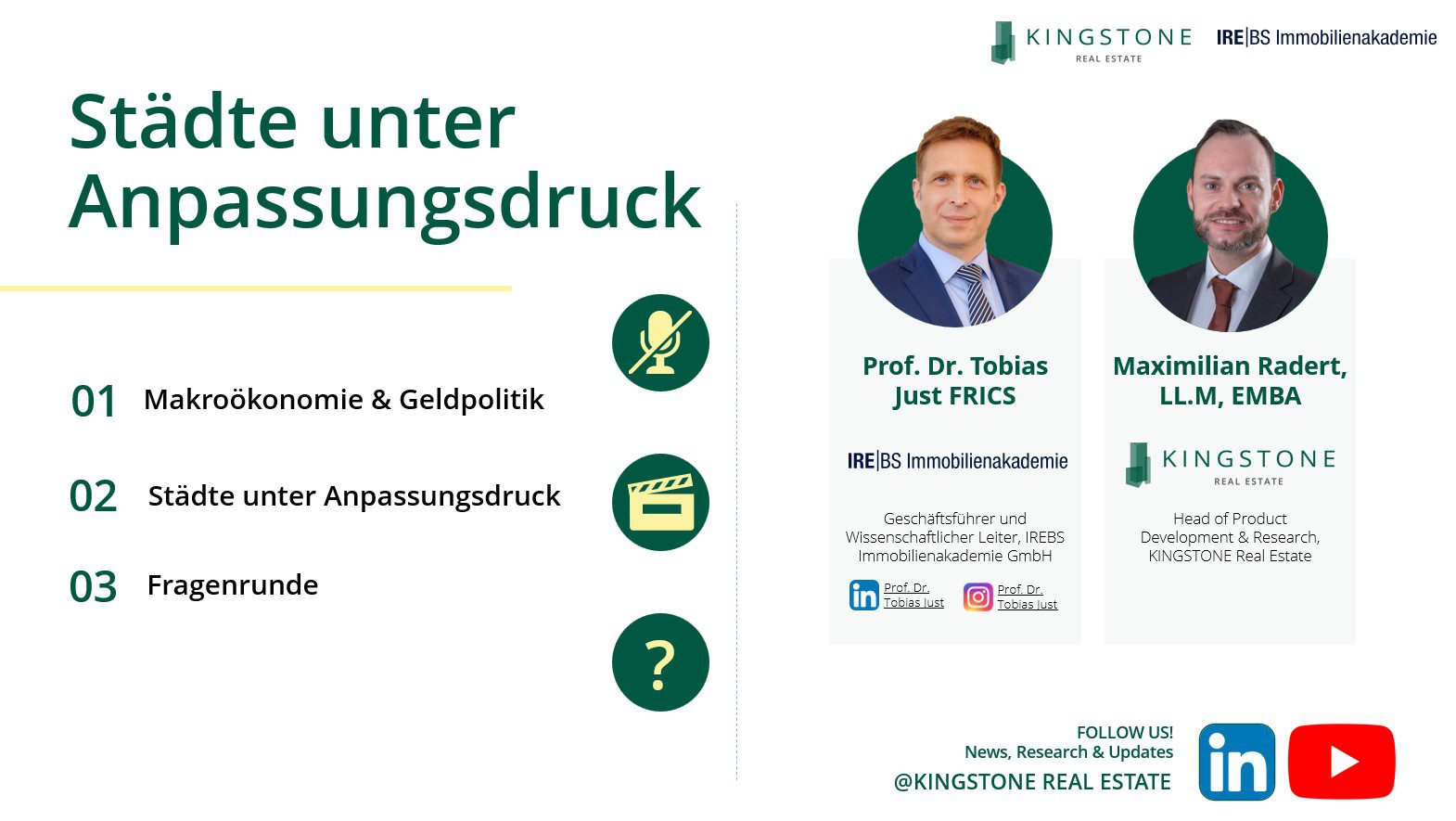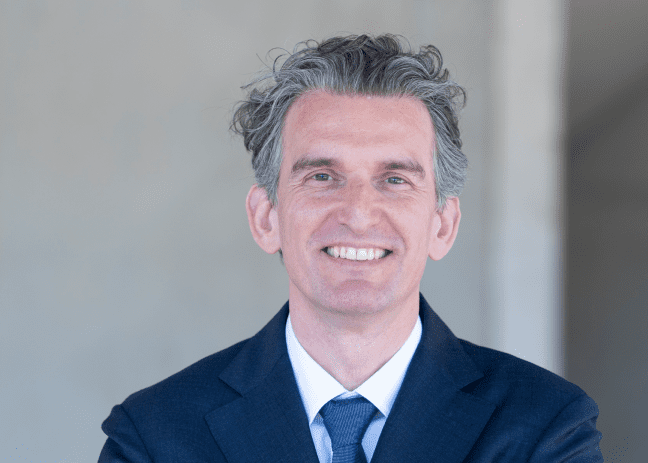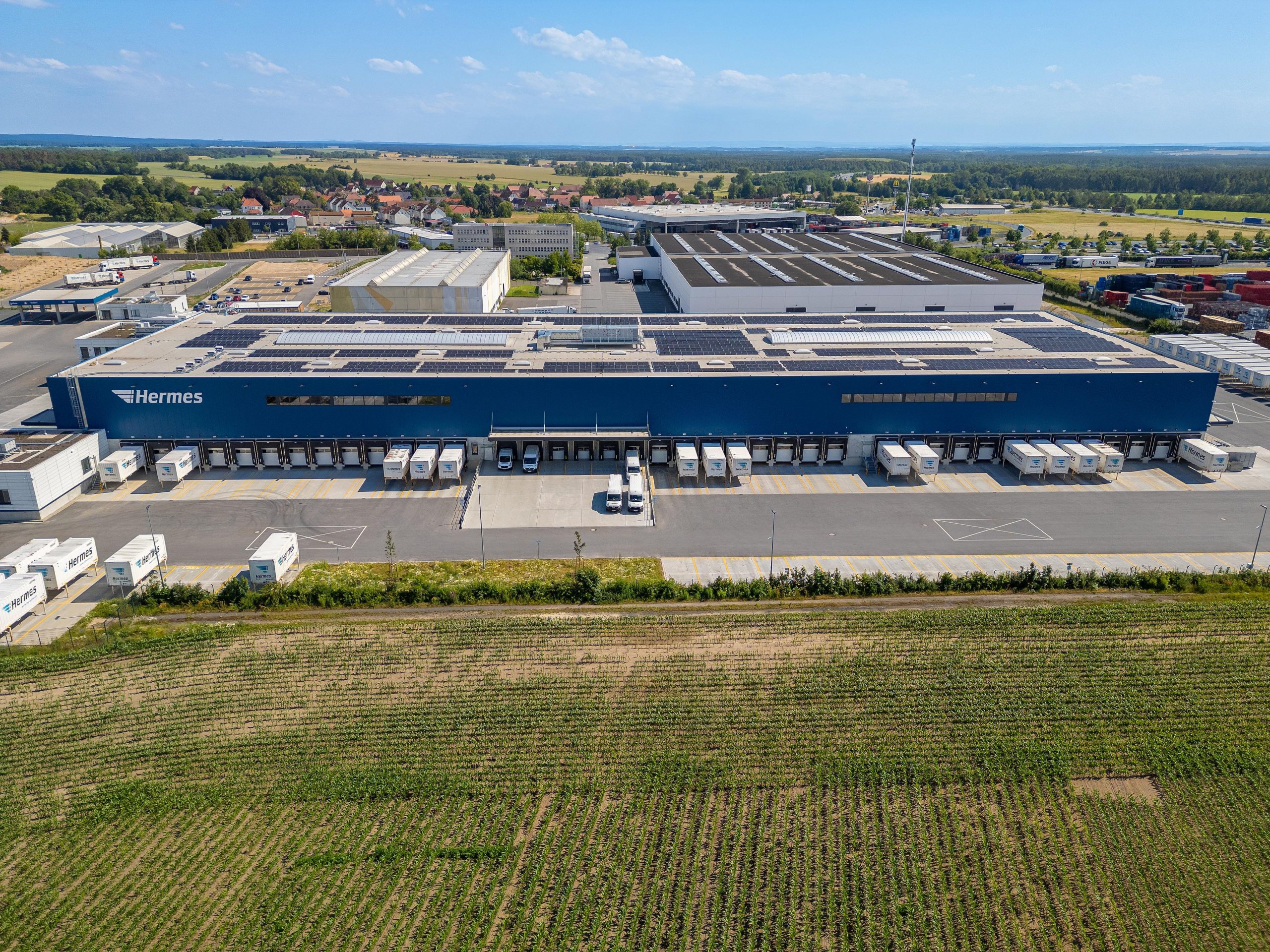Webinar Review: Cities under Pressure to Adapt – Density, Mix, Housing as a Future Formula for the City Center
On June 13, the fourth edition of our established webinar series Macro Matters – The KINGSTONE Real Estate View took place this year. Under the title “Cities under Pressure to Adapt: Back to Density, to Mix, to Housing”, the webinar was dedicated to the question of how German city centres can reinvent themselves under structural pressure to change – economically, functionally and in terms of urban society.
We were able to welcome Prof. Dr. Tobias Just FRICS, Managing Director and Scientific Director of IREBS Immobilienakademie GmbH, as a guest speaker. With his many years of experience and analytical depth, he enriched the event both in the macroeconomic classification and in the discussion on the future of urban spaces.
The Macro Matters series is classically divided into two parts:
-
Macroeconomic Overview – Classification of Business Cycle, Monetary Policy and Capital Markets
-
Real estate focus – analysis of relevant market segments, structural trends and investment strategies
Part 1: Economies in Transition – Interest Rate Turnaround, Fiscal Scope and Market Sentiment
Maximilian Radert, LL.M., EMBA, Head of Product Development & Research at KINGSTONE Real Estate, opened the webinar with an economic classification. His analysis focused on the question of how resilient the often anticipated transition to a new monetary and fiscal policy phase actually is.
Prof. Dr. Tobias Just FRICS supplemented this macroeconomic assessment with an interim conclusion on sentiment economics for the real estate industry:
-
“Construction turbo” of the federal government: The first signals of regulatory relief are visible, but are not yet sufficient to initiate a trend reversal on the real estate market in the short term.
-
Just soberly classified the prospects of success of these political measures – as necessary, but not sufficient. Without market impulses from the interest rate and regulatory channels, the turnaround would remain fragile from an investor’s point of view.
These assessments logically led to the overarching question of the webinar: What role can real estate still play in the future – especially in urban areas? And: How can it contribute to solving structural problems in the context of inner-city change?
Part 2: The city centre in upheaval – causes, trends, solutions
In the second part, Prof. Just presented key results of a recent study on the future viability of German city centres. His diagnosis was clear: the old-style city centre – dominated by retail – is a discontinued model. The central question is no longer whether, but how it must reposition itself.
The most important findings:
-
Functional change: The monofunctional retail orientation is no longer sustainable. Instead, culture, gastronomy, education and, above all, housing are gaining in importance.
-
Residential use as an anchor: Urban living can have a stabilising effect, especially in shrinking retail locations.
-
Transformation opportunities: The conversion of vacant department stores or office properties into mixed-use structures is challenging – but forward-looking.
-
Recommendations for investors and municipalities: Realistic economic models, flexible usage concepts, approval security and cooperative development processes are prerequisites for a successful transformation of the city centre.
Want more “Macro Matters”?
Our webinar series Macro Matters – The KINGSTONE Real Estate View regularly offers well-founded perspectives at the interface of business, capital markets and real estate strategy. Here is a review of the last editions:
-
May 2025 – “Puzzle of Megatrends”
Together with Prof. Dr. Thomas Beyerle , we discussed how stagflation, AI, regulatory change and price psychology are shaping the real estate world. The focus is on mixed-use concepts, the housing promise of the traffic light coalition and new location requirements in the office segment. -
March 2025 – “Geopolitics, Markets, Strategies”
With Marc Schattenberg (Deutsche Bank), we analyzed economic power shifts, debt crises and their geopolitical dimension. What role will Europe play in the future – and how will real estate investors position themselves in the area of tension between risk and strategy? -
February 2025 – “10 theses for the real estate year”
In a panel of experts with Carsten Mumm, Mark Holz and Maximilian Radert , ten theses on the economy, interest rates, inflation, asset classes and valuation trends were presented – as a compass for strategic decisions in 2025.




